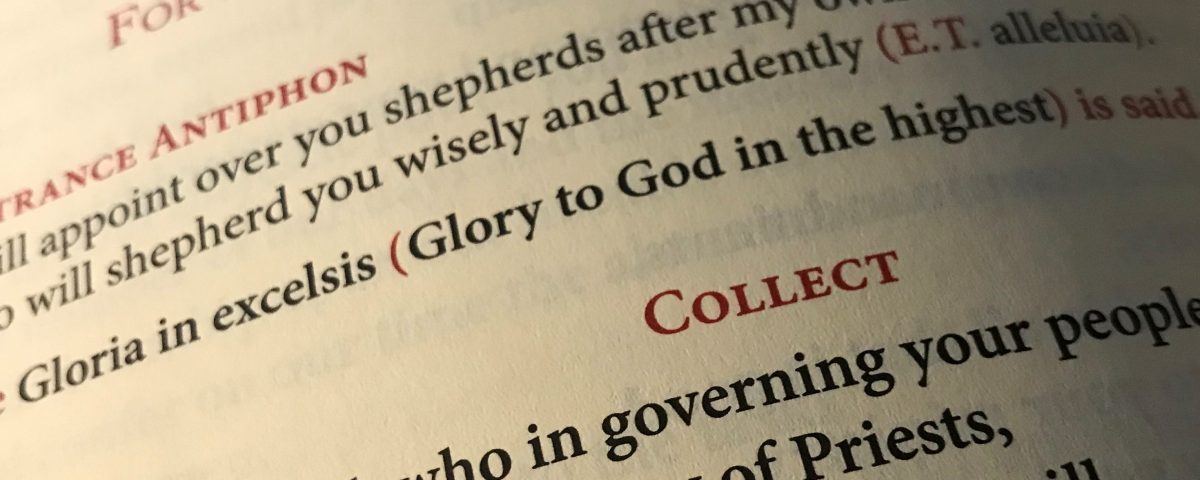Whose Catholicism is it? Whose Catholic Church?
Leading a large parish, as a preacher, I’ve learned to ask these questions. Taking nothing for granted, they’re questions I know I must repeatedly raise—to myself, to my colleagues, to my people.
Because in the Church, you see, especially in the midst of conflict, we often can forget that Catholicism isn’t ours, nor the Catholic Church—that is, as a possession. I’m thinking, of course, of the Church pulled and divided by scandal and conflict, political and ideological wars having become ecclesiastical, petty and not quite holy. Bishops fighting bishops, tweeting pundits, open letters written about the pope’s supposed heresy: what happens is that quite naturally it tempts each of us to become defensive, to protect and preserve what we feel is our own. And which we sometimes mistakenly presume includes the Church.
It’s a mistake we can make because faith is personal. Christ is our brother and Lord; the Church is our Mother, and we are all children of the Father. These things we feel personally. They’re not abstract truths at all. Yet what creeps into human relationships sometimes creeps into our understanding of the Church. We begin to think of the Church possessively when in fact the Church possesses us. That is, we begin to think of Catholicism as something utterly ours, as something we define and not which defines us.
Which, of course, is a dangerous idiocy for those ordained and who preach; dangerous too for anyone in leadership in the Church. And that’s because when I begin to draw people into a Church or a Catholicism idiosyncratically purely mine, what I’m offering is no longer the communion of the Catholic Church, but more pathetically my communion, making them my disciples instead of Christ’s.
It’s a spiritual crime of the first order. St. Augustine, meditating on Jesus’s words to Peter in John’s Gospel thought it clearer to imagine Jesus saying not just “feed my sheep,” but, ”feed my sheep as mine, and not as thine own.” As pastors and preachers, ministers of a communion bigger than us, we must remember that in preaching and ministry nothing is our possession—neither Catholicism nor Catholic people.
Because it’s tempting to lash out in the pulpit. Either against the pope or some bishop, or some synod or meeting, it’s tempting to set the record straight, to tell it how it is. Instead of preaching the Gospel, we can be tempted to offer commentary, trying to get people to see things the right way, my way. The problem being, of course, is that it’s not the right way nor is it how it is, but rather merely my view.
And that’s a problem for two reasons. First, as Catholic preachers we’re called to be obedient to the Church, and not abstractly. That is, we’re called to support our bishops and the pope, not sow doubt or discord. Which, of course, can be very difficult sometimes. But here, at least in the pulpit, silence should be our fiercest criticism. Now I’m not talking about clerical conspiracies of silence (that is another matter); rather, I’m saying that in our ecclesiastical battles, the pulpit is not the place to proffer criticisms of bishops or fellow clerics. Because ecclesial unity is a good greater than ideological unity.
But also, because the genius of Catholicism is that being universal, it gathers all people into the fold, demanding they worship together, serve each other, and practice patience and forgiveness with one another. That is, the greatness of Catholicism is that time and place matter; it thrives on the understanding that when disparate people come together in Christ (Gal. 3:28), over time the Holy Spirit unfailingly gives the gift of peace. Which means the preacher’s job is not to divide, but to keep people inspired just enough that they risk being patient, risking that strange miracle of coming together to sit, to worship, and pray with people wildly diverse just because they’re there. And because they believe in the Spirit.
This is the deeper reason preachers mustn’t think it their job to set any records straight. Because it risks stifling the Spirit, the new Pentecost we need. It’s why the preacher’s task is to be obedient to a Church bigger than he is, tirelessly inspiring charity and patience.
Because that’s what’s required for the Holy Spirit to work. Who, of course, is a much better preacher than us.
©2019 Rev. Joshua J. Whitfield










